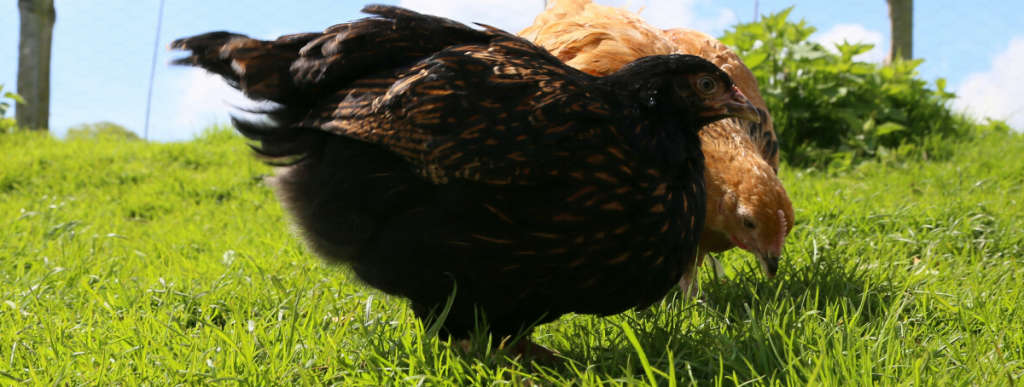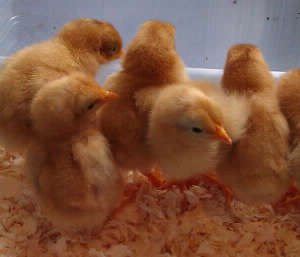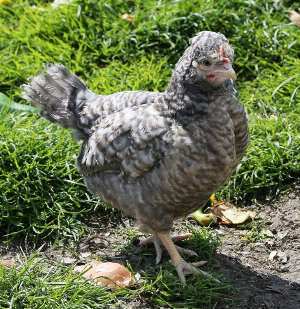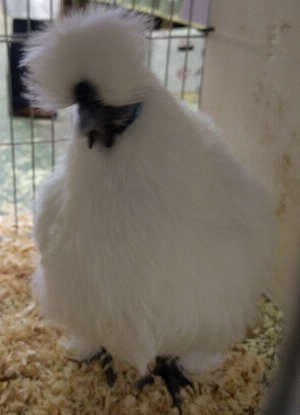I cannot keep my chickens.

Incubating chicks and watching the hatch is a fascinating and beautiful thing to witness, however, things get a bit trickier if you discover you cannot keep the chickens after incubating them.
It is surprisingly common that people may not be able to keep their chickens any longer because of a change in their circumstances.
There may be a few reasons they can't stay with you:
- There are cockerels in the hatch and your ordinances don’t allow you to keep boys.
- You had a really good hatch and have too many.
- You’re in education and have to dispose of them after a classroom hatch.
- You may want to start a hatchery business and would like to try it out first.
- Personal circumstances mean you have to get them new homes.
I regularly have to find homes for young birds I can not keep as I run a chicken website and need to write about and photograph the different breeds but do not have the space to give them all a home.

Above: These New Hampshire Red bantam chicks are as cute as a button but statistically half will be male.
It takes an average of 21 days to incubate chicken eggs, after which your eggs will start to hatch. If you’ve been incubating chicken eggs, you should be prepared with a brooder on hand even if you don’t plan on keeping the chicks.
A brooder is a heated enclosure that provides the chicks with a source of heat, food and water, and bedding. Without a brooder, your chicks will die from the cold.
How long should you keep chickens after hatching?
It makes the most sense to organise their onward path before you begin to hatch. And decide at what sort of age you will be moving them on. The best age to sell chickens on is when the no longer need supplementary warmth. Known to chicken keepers as off heat.

Above: Cream Crested Legbar grower. This can be a good time to sell your chicks. they are about 6 to 8 weeks old, off heat and fully feathered.
Prospective chicken buyers normally prefer to have day old chicks or POL (Point Of Lay) birds at 16 to 19 weeks.
If you can’t provide care for the chicks for at least a couple weeks after they hatch, it’s best not to incubate them at all. In the end, chickens are living beings that require care and attention, especially when they’re chicks. It’s important not to treat them like toys.
However, if you’ve incubated chickens you cannot keep, your best bet is to sell them or give them away. This is also the most humane thing to do, if you’re unable to care for them. Classified sites like Craigslist are good places to start, though some now have rules in place limiting the sale of live animals.
If you do sell them, make sure the purchaser understands the responsibility of what they are taking on, chickens are a 5 to 8 year commitment.
There are hundreds of local Facebook groups that focus on poultry can also be a great help, or you could see if there are any local poultry swap or sale events happening nearby. Most times, there are chicken farmers or breeders willing to take on additions to the flock. New chicks will be quarantined for 30 days anyway before being introduced to the flock, which gives you some time to find a willing farmer.
How can you maximise the chance that your chickens will go to a good home?
Make sure you get good quality eggs from a NPIP registered source. This will give you the edge when coming to sell them on.
Below: Some breed, like the Silkie are in great demand.

Get rarer birds that are more in demand. Chickens in demand always sell for decent money. Silkies like this lovely hen in the picture above always seem to be in demand. I could sell 3 times as many as i do.
Source eggs from quality well bred stock. Poultry that is true to type from good breeders will stand you in good stead.
Are there any restrictions on selling poultry?
Keep in mind that there may be certifications and regulations surrounding the sale of live poultry. In the USA, there is the National Poultry Improvement Plan (NPIP) that requires testing of the flock to sell hatching eggs, chicks, or chickens—this is especially enforced across state lines.
This permits for the testing of disease like Avian Influenza, Mycoplasma Synoviae, Pullorum-Typhoid, and more. While very beneficial for the overall health of the poultry industry, it may end up causing some roadblocks for you. However, this varies by state and might not be something you’ll encounter.
If you’re unable to find a farmer willing to take them you can also reach out to local humane societies. While they rarely take farm animals, they may have some local contacts who can help out or who can take on the chicks themselves. If you do this, you should donate some money to the charity when you drop off the chicks to offset the costs of re-homing them.
Finally, there is the option of dispatching the chickens by selling them to a reptile farm who will use the chicks as feed. I have in the past given my surplus male chicks to a friend who keeps ferrets.
If you hatched meat birds, like Cornish Cross Hybrids, and have the means to raise them for a while, they will be ready to butcher at about 8 weeks old.
Other breeds can take up to four months to be ready. If you are uncomfortable with butchering the chickens yourself, you can pass the job off to a professional. They will usually charge by bird to butcher, bag, and flash freeze.
You can have the experience without the hassle.
Want to have the experience of hatching chicken eggs without the responsibility of raising chickens? Some chicken farmers will provide hatching eggs to individuals or organisations (such as teachers, scouts, or church groups) for a nominal fee with the understanding that any chicks that successfully hatch will be returned to the farmer.
This gives you the chance to incubate the eggs and watch the hatching process without worrying about caring for and raising the chickens yourself.
